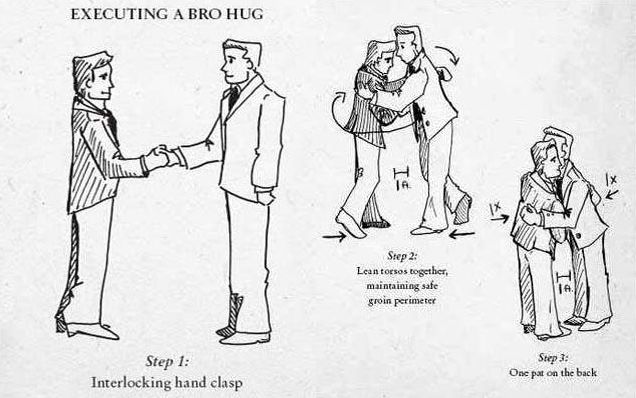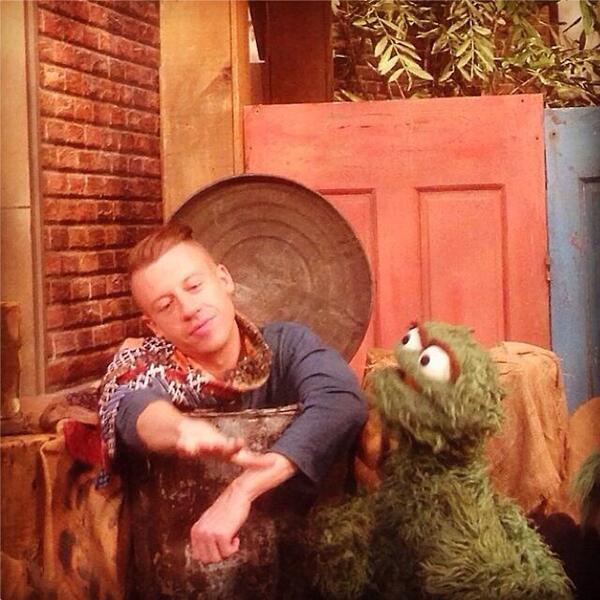“We’re all prostitutes”
The Pop Group
Eigentlich wollte ich noch einen ausführlichen Blogpost dazu schreiben, warum ich den Erlös der ORCHID Party diesen Samstag, 1.8.16 im Zentralcafé, an Kassandra e.V. spenden möchte, aber die Zeit rennt mir mit Party-Vorbereitungen und Musik aussuchen davon, also nur die Kurzfassung:
Aus dem konservativen Lager wird in den letzten Jahren wieder lauter gegen uns Queers und gegen Sexarbeiter*innen Stimmung gemacht. Deswegen möchte ORCHID – auch in Erinnerung an früheres Zusammenstehen (ich sag nur “Schwulen- und Hurengala” 1990 im KOMM) – ein kleines queer-feministisches Zeichen der Solidarität setzen und etwas Geld für die knappe Kasse des engagierten Kassandra-Vereins erfeiern, ganz im Geiste einer Repolitisierung des CSD: Sexarbeit sollte nicht stigmatisiert werden und die Idee eines Prostituiertenmeldegesetzes ist einfach nur krank und gefährlich. Sex work is work.
Ich wünsche allen morgen einen großartigen CSD und eine rauschende Partynacht!
Unten dann noch etwas mehr Info.
luvluv,
eve massacre
x
Was ist der Kassandra-Verein?
“Kassandra ist Ansprechpartnerin für Sexarbeit und Prostitution. Wir setzen uns dafür ein, dass Menschen in der Sexarbeit mit Respekt behandelt werden und der Wert ihrer Arbeit für die Gesellschaft anerkannt wird. Die rechtlichen Rahmenbedingungen für Sexarbeit müssen so gestaltet werden, wie sie auch für andere Tätigkeiten gelten.”
www.kassandra-nbg.de
Noch etwas genauer, was mit dem derzeit geplanten Prostitutionsmeldegesetz droht: Totale Rundumüberwachung und drohende Kriminalisierung durch örtliche Meldepflicht (das hieße zum Beispiel: wenn du in Nürnberg gemeldet bist, wäre ein Kundenbesuch in Fürth ohne Ummeldung illegal). Die Meldepflicht soll auch für Gelegenheitsprostituierte gelten. Eine Meldepflicht übrigens, die es in dieser Form seit 1939 nicht mehr gab, wie J.R. Henning erwähnt. Dazu käme der Zwang zum ständigen Mitführen eines Nachweisdokuments. Jährliche obligatorische “medizinische Beratung”, während eine staatliche Behörde die “Einsichtsfähigkeit” von Sexarbeiter*innen überprüft. Erlaubnispflicht für “Prostitutionsstätten” samt Zuverlässigkeitsprüfung (z.B. auch wenn zwei Frauen zu gegenseitigem Schutz zusammen eine Wohnung nehmen, nicht erst bei großen Häusern). Jederzeitige, unangekündigte und verdachtsunabhängige Polizeikontrollen für die kein richterlicher Durchsuchungsbeschluss nötig ist. Ach ja, und Kondomzwang.
Donna Carmens J.R. Henning erklärt im junge-welt-Interview warum es zu einer solchen Kriminalisierung des Prostitutionsberufes kommt:
“Aus herrschender Sicht ist Prostitution das Einfallstor einer als unerwünscht geltenden »Armutsmigration«. Die Einwanderung geringqualifizierter Menschen erscheint als unzumutbare Belastung der verbliebenen Strukturen des Wohlfahrtsstaats. Hinzu kommt, dass der bürgerliche Staat sich immer weniger imstande sieht, Risiken und Folgewirkungen prekärer Beschäftigung seiner Staatsbürger dauerhaft zu kompensieren. Daher müssen die Lasten sozialer Verwerfungen wieder stärker auf Familien und familienähnliche Partnerschaften abgewälzt werden – Sozialstrukturen, die auf serieller Monogamie und damit auf der Einheit von Sexualität und Liebe beruhen. Prostitution aber steht für eine dezidierte Trennung von Sexualität und Liebe. Sie basiert auf dem Einvernehmen der Beteiligten, dass bezahlte sexuelle Dienstleistungen nicht mit verpflichtenden sozialen Bindungen einhergehen.”
Prekäre Arbeit, Diskriminierung aufgrund von Transsexualität, Stigmatisierung wegen einer Sexarbeit-Vergangenheit, zu niedrige Renten, zu teures Studium, kein Recht zu Arbeiten wegen Migrationsstatus – niemand bestreitet, dass es x Gründe gibt, der Menschen in die Sexarbeit treibt, die lieber etwas anderes täten, aber: Wenn wir für Sexarbeiter*innen etwas zum Besseren ändern wollen, dann müssen wir die Arbeits- und Lebensbedingungen für alle verbessern und sie nicht verschlimmern, wie es das Prostitutionsmeldegesetz tun würde. Wird, wenn wir nicht breit darauf aufmerksam machen und protestieren.
Falls du etwas spenden möchtest, kannst du das entweder einfach heute am Einlass tun, oder per Überweisung:
Kassandra e.V.
Sparkasse Nürnberg
IBAN: DE74 7605 0101 0001 3390 48
Swift-BIC: SSKNDE77XXX
Hier jetzt noch ein paar Links, Videos, Twitter-Accounts zum Weiter-Informieren über das Thema Sexarbeit:
How LGBT Liberation Connects to the Oldest Profession
Rather than ignore the centuries-long relationship between sex work and queer liberation, we should embrace it, writes editor at large Diane Anderson-Minshall.
Sexarbeit ist kein Verbrechen
Amnesty International kämpft für die Straffreiheit von Sexarbeit. Prominente wie Meryl Streep oder Alice Schwarzer kritisieren das in einem offenen Brief – sie liegen falsch damit. Ein Gastkommentar von Alexandra Belopolsky
»Meldepflicht für Sexarbeiterinnen hatten wir zuletzt 1939 unter den Nazis«
Der Entwurf der SPD für ein »Prostituiertengesetz« fällt noch hinter die Adenauer-Zeit zurück. Ein Gespräch mit Juanita Rosina Henning
„Prostituiertenschutzgesetz“: Ein schäbiges Gesetz
Eine Analyse von Doña Carmen e.V.Frankfurt, 17. Juli 2015 (PDF)
Prostitutionsdebatte: Wie Sexarbeiter*innen und Betroffene von Menschenhandel gegeneinander ausgespielt werden, von Sonja Dolinsek
Prostitutionsgesetz: Zurück in die dunklen Ecken (ausführliche Erläuterungen zu vielen Punkten)
Almut Wessel: Offener Brief an Manuela Schwesig: Ihr Plan ist ein Frontalangriff auf das sexuelle Selbstbestimmungsrecht ALLER Frauen
Laurie Penny: The most harmful effects of prostitution are caused by its criminality. Sex work isn’t stigmatised because it is dangerous. Sex work is dangerous because it is stigmatised.
Laurie Penny on sex work: The Soho raids show us the real problem with sex work isn’t the sex – it’s low-waged work itself. The moral crusade against the sex trade, whether it is pursued by the police or by high-profile feminists who have never done sex work, serves the same function that it has always served
“Why Amnesty International Must Hold Firm in Its Support for Sex Workers”
Amnesty International für die Menschenrechte von Sexarbeiterinnen und Sexarbeitern
How LGBT People Would Benefit From The Decriminalization Of Sex Work
Ein ganzer Blog zu Sex Work Research:
Auf Youtube:
“Sexarbeit als Weg der sexuellen Emanzipation” @courtisane_de
“A Swedish sexworker on the criminalization of clients” Pye Jacobsson
Wenn ihr auf Twitter seid, folgt zum Thema Sexarbeit doch zum Beispiel einfach:
@sonjdol
@melissagira (Melissa Gira Grants Buch “Playing the whore: The works of sex work” sei auch empfohlen! Auf deutsch: “Hure spielen: Die Arbeit der Sexarbeit“, Nautilus Verlag, 192 S.)
@pastachips
@courtisane_de
Und als Bonus hier noch ein Clip von Nick Cave über den The Pop Group Song “We’re All Prostitutes”, der das Motto dieser ORCHID Nacht ist und das Thema natürlich weit über den Sexarbeitsbereich hinausträgt.





